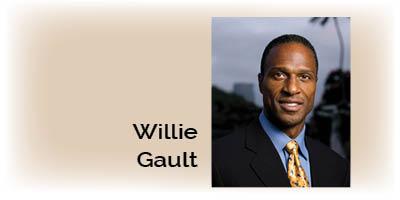Readers who write are often very interesting messengers. One gently suggested I please limit “basketball” comments in today’s westwords. Could be the Saturday night upset left a scar.
Todd Helton’s recent promotion to the baseball hall of fame improved his reputation as a football player.
He was outstanding in both sports at Central High. At Tennessee, he was national player of the year in baseball in 1995. That was when he hit .407 with 20 home runs and batted in 92. He was 8-2 as a pitcher with an earned run average of 1.66.
“Starting quarterback at Tennessee” made a large impact on some media giants. The thought was intoxicating. Todd became even better than he was in football.
Indeed, he was a genuine dual-sport Volunteer but all his honors were in baseball. He played in 12 football games. Career numbers were 66 passes, 41completions, 484 yards and four touchdowns. He ran 36 times for 87 yards.
Most accomplishments were in 1994 when he started three games.
For comparison only, not intended as a put-down, Todd’s friend Peyton Manning threw for 523 yards and five touchdowns on one Saturday afternoon against Kentucky.
A choice few of many multi-sports facts …
Nathan W. Dougherty, all-Southern football guard, 1907-08, was drafted to play other sports. He was captain of Vol football, basketball and track teams at the same time.
He became dean of the College of Engineering (1940-56) and chair of the UT Athletics Board, a position he held for 40 years. He was president of the Southern Conference for a while, one of the founders of the Southeastern Conference, once acting commissioner of the SEC and vice-president of the NCAA.
Dougherty’s really big accomplishment was hiring young Robert R. Neyland as an assistant coach and promoting him to the top job a year later.
Bob Foxx played wingback for Neyland. His winter game was basketball. He played baseball in the spring. In a long-ago poll of sports fans, Foxx was voted Knoxville’s greatest athlete of the first half of the 20th century. He played minor league baseball in 1941.
Ron Widby grew up at Fulton High to be the best example of a multi-talented Volunteer. He was an all-American punter and basketball forward and a very good first baseman and a .300 hitter. He had surprising power and touch in golf. A few more months in each year might have led to letters in tennis and track.
As a UT senior, he led the nation in punting average at 43.8. In basketball, he averaged 22.1 points and 8.7 rebounds while leading the Volunteers to a conference title. OK, if you must know, it was his idea to dunk a doubting sportswriter, fully clothed, in a cold shower.
Widby played professional basketball and punted in two Super Bowls. He became a teaching pro in golf.
“God gave me talent,” Widby once said. “I really can’t explain why, but sports came naturally.”
Condredge Holloway (great nickname, Artful Dodger) may have been the most exciting quarterback ever in the SEC. He could transform broken plays into big gains. He was MVP of two minor bowls.
Bill Battle, asked to describe Condredge, said he was “indescribable.”
Condredge played 13 seasons in the Canadian Football League (25,193 yards, 155 touchdown passes and 3,167 rushing for 13 additional scores). He was league MVP in 1982.
Holloway actually preferred baseball. The Montreal Expos drafted him No. 1 coming out of high school in Huntsville, Ala. He was too young to legally sign. His dear mother, Dorothy, invoked wisdom and love and said go to college. Tennessee was the beneficiary.
Condredge was an all-American shortstop in 1975. He had a career batting average of .353.
John Wooden of UCLA coaching fame said Holloway’s best sport was basketball.
Willie Gault thought Willie Gault was the most talented. He could run. He could catch and run. He could dance. He was a natural on stage or the movie screen.
As Tennessee legends go, Willie was unique. He had it all – and he was fast, really fast.
Gault was a Vol wide receiver. He scored a touchdown in his first game at Neyland Stadium, 69 yards with a Jimmy Streater pass. He was lethal on kick returns. He led the Vols in all-purpose yardage as a sophomore, junior and senior.
At the 1983 NCAA indoor track championships, Gault made history. He was first to win the 60 dash and 60 hurdles. He was a member of the U.S. team ordered to boycott the Moscow Olympics. He made the 1988 Winter Olympics bobsledding team.
He made money with the Chicago Bears and won fame as dancer, singer and promoter of the Super Bowl Shuffle.
Among two-sport Volunteers, Richmond Flowers was a forever favorite, a courageous football player and the best hurdler in the world for a while. He stands tall in the field of unfulfilled dreams.
The three-time track all-American missed a shot at a gold medal in 1968 Olympic hurdles because of a pulled hamstring in a training incident.
In the happiest moment of his Tennessee football career, he scored the touchdown in a 10-9 victory over Alabama. He had enough potential to spend four years in the NFL – with the Cowboys in 1969-70 and the New York Giants in 1971-72. He had a sense of humor. He described himself as “the fastest white boy alive.”
Best story: Quarterback Dewey Warren promoted three races between Richmond and really fast quarter horse Red Dragon, as the big attractions at a country fair and rodeo in downtown Tellico Plains.
Farmers bet many $20s on the horse. Richmond won the first race. Red Dragon won the second. Betting increased. Richmond ran really fast in the deciding race because he thought the horse was coming in his lane.
Warren paid Flowers $50 per race. Dewey’s profits were likely greater.
“Well, it was my idea.”
(Marvin West welcomes comments or questions from readers. His address is marvinwest75@gmail.com).
Cutline: Willie Gault

